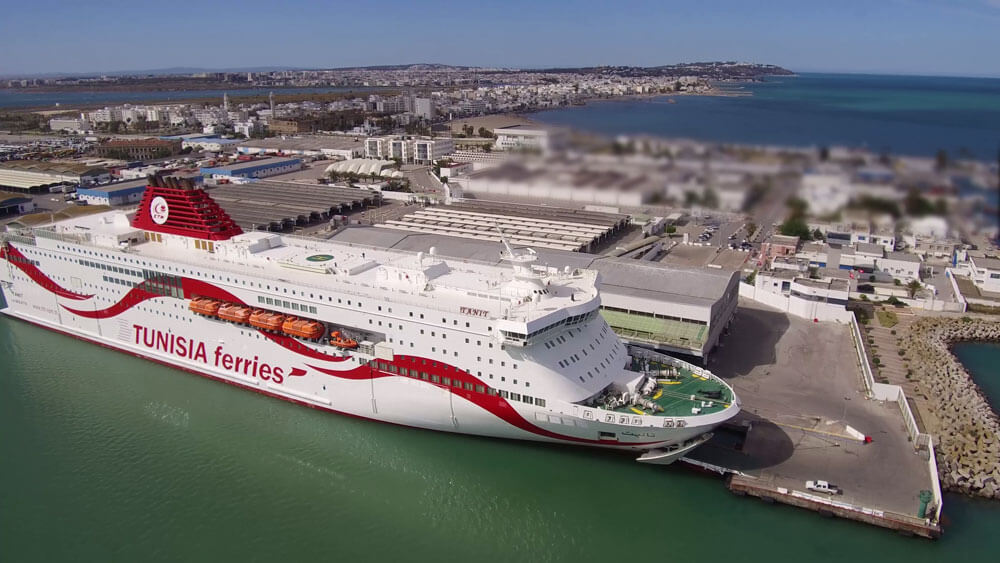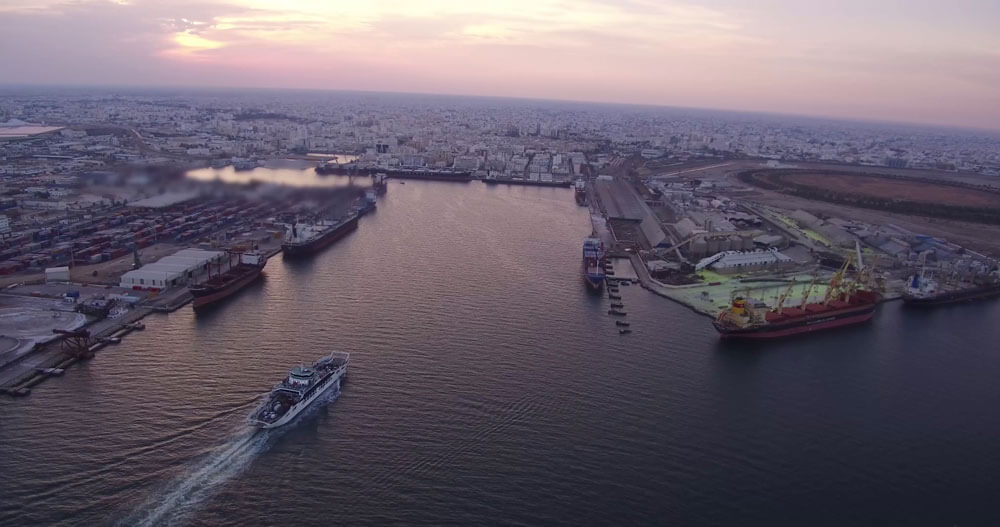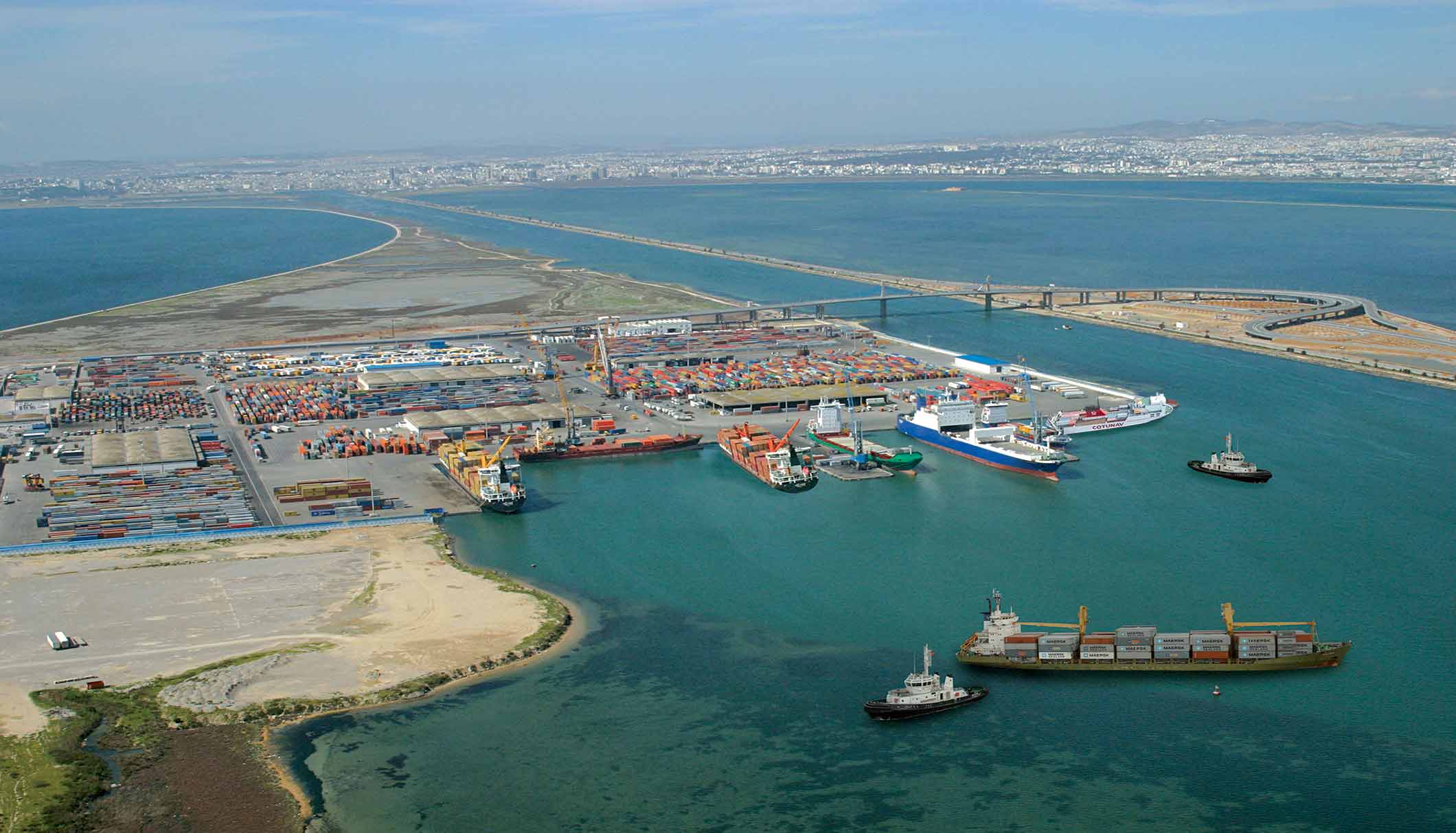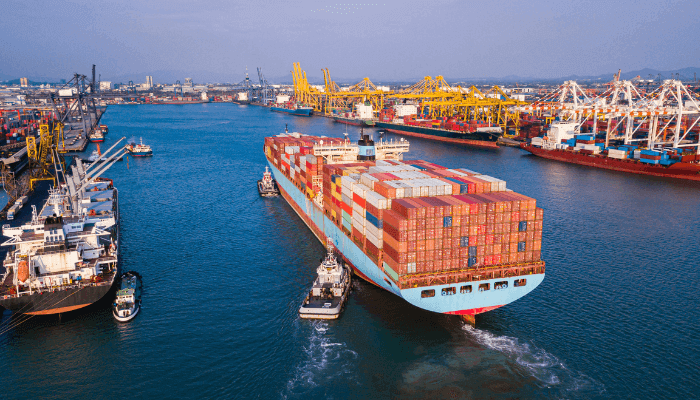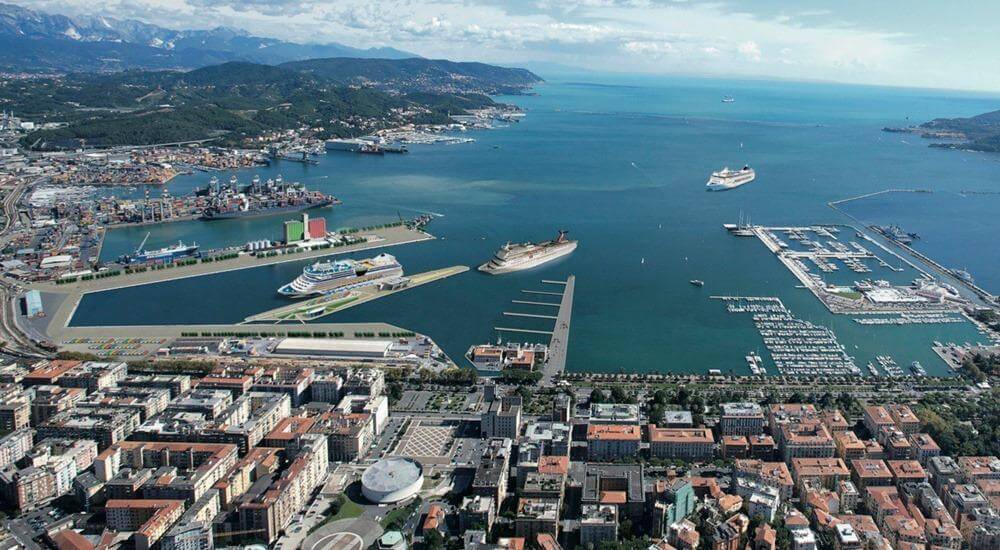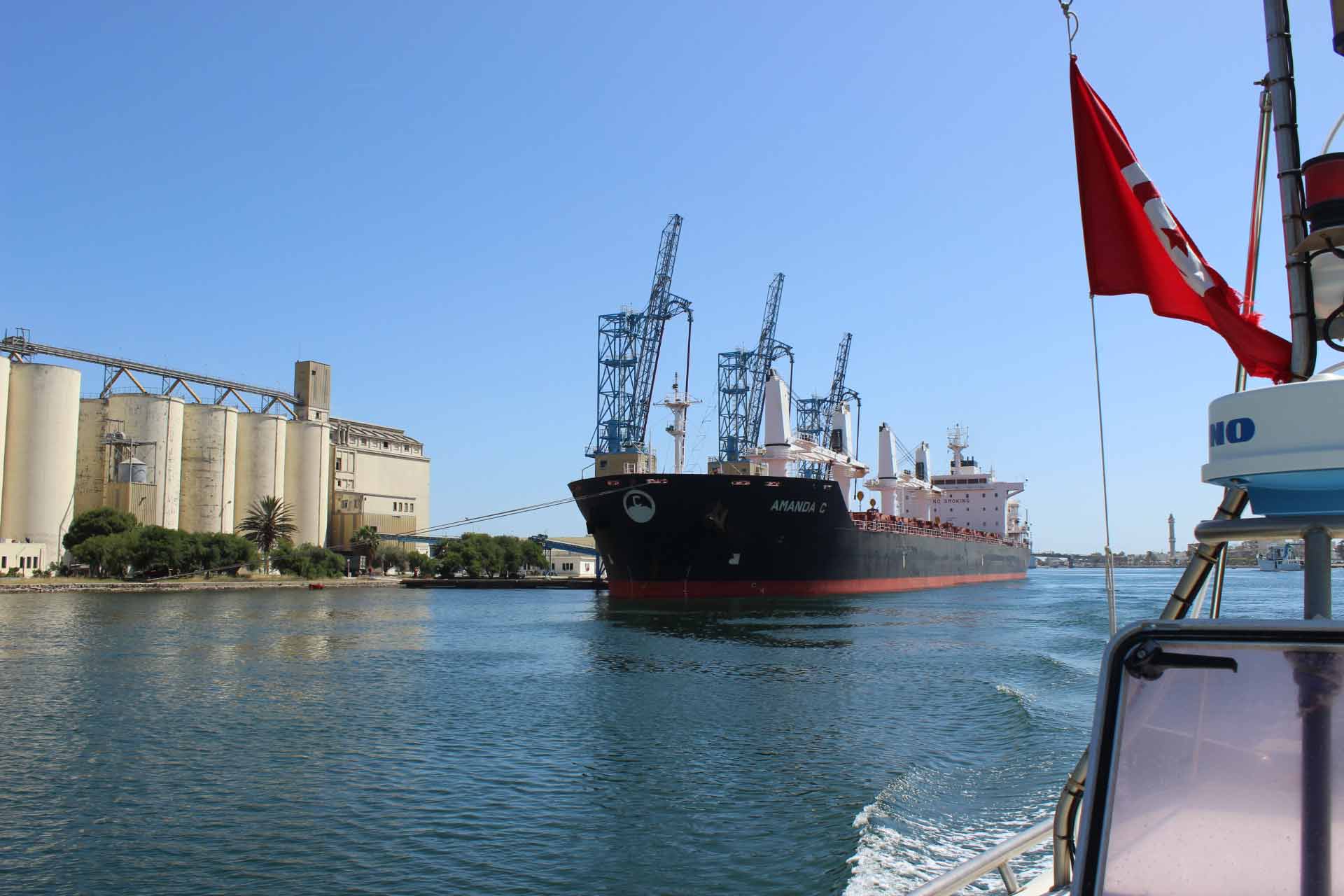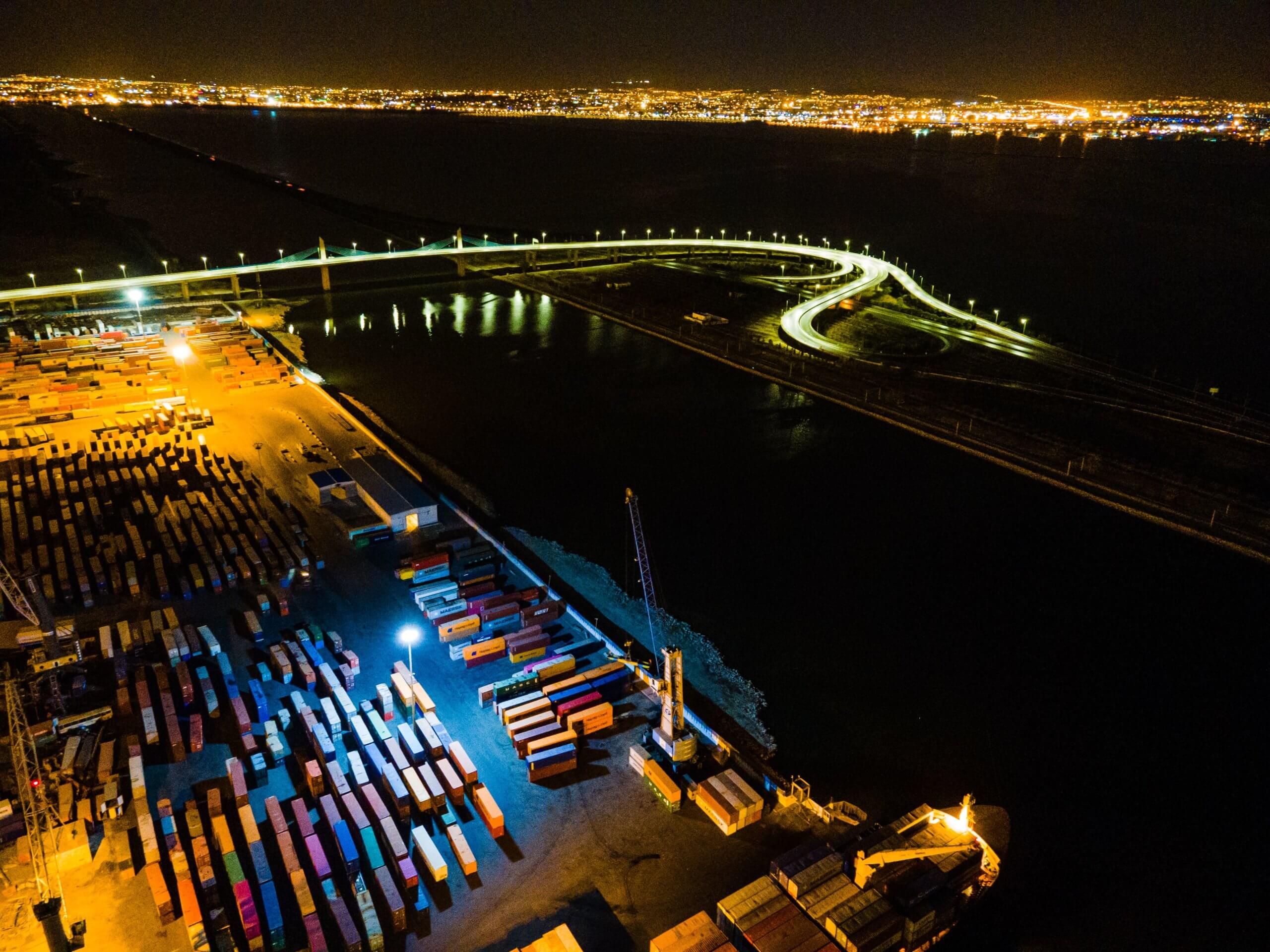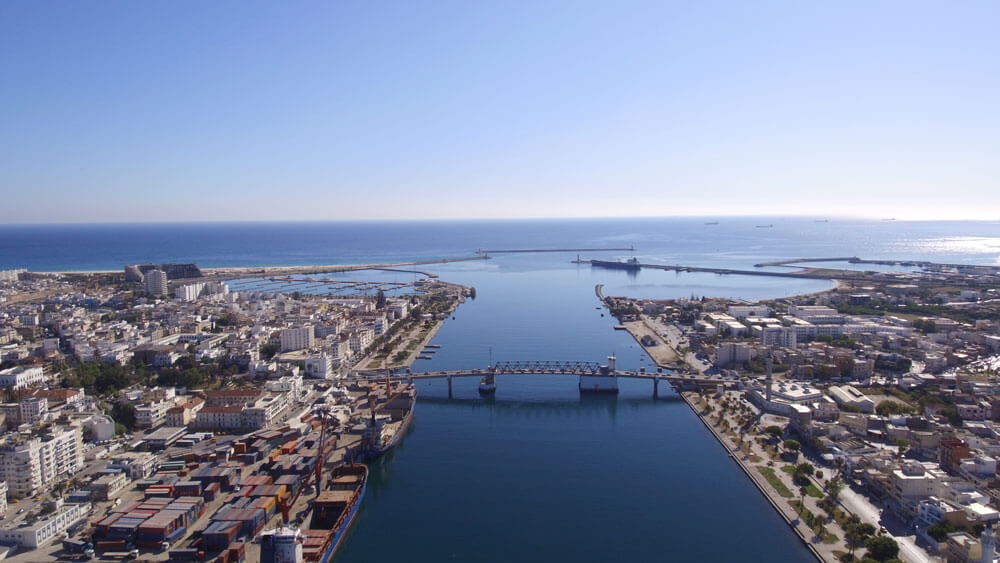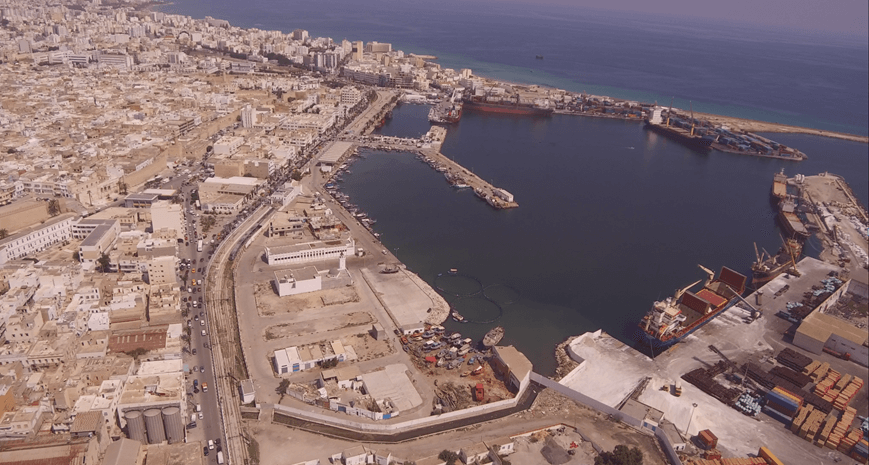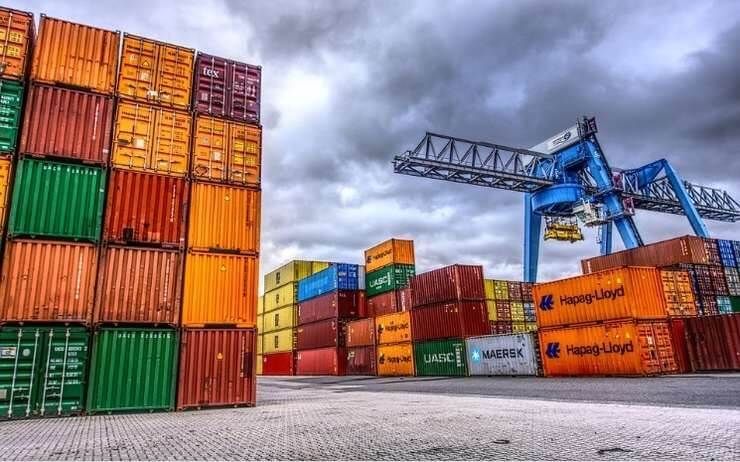MED MOSAIC
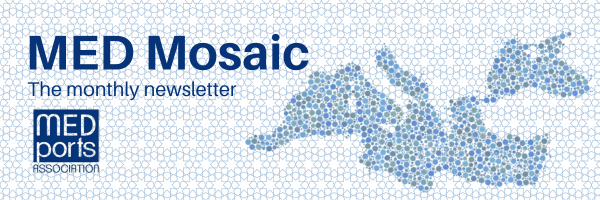
Issue 3
HOT SEAT:
Interview with Foued Othman – MEDPorts Association Executive Vice-President
Charting the Course: North African Ports’ Resilience and Transformation in a Changing World
- How have the North African ports been performing in recent years, and what are the key factors contributing to their success or challenges they
are facing?
The last few years were not easy to handle. We have experienced three years of unrecorded disruptions in our sector. Solidarity between port communities and resilience learned from the past has enabled North African ports to face different challenges. Major factors that will influence port and maritime transport sector in the coming years are:
- Economic Recovery: Many sectors, including the port and maritime industry, have been significantly impacted by the COVID pandemic, it is expected that global trade will increase in the future years.
- Port and maritime sector will continue digital transformation and automation technologies. Advanced technologies such as block-chain, Internet of Things and artificial intelligence.
- Sustainability and Environmental Regulations: Efforts to reduce emissions and meet regulatory requirements will continue…
So collaboration between industry stakeholders, training, providing knowledge exchange, promoting labor skills and best practices, analyzing the market, monitoring the traffic flows, will play a significant role in addressing these challenges.
- Looking ahead to 2050, what are the major opportunities and challenges that North African ports are likely to encounter, and how can they be
best prepared to address them?
One of the main factors of integration into international markets is the existence of developed logistics infrastructure to ensure fluidity flows of goods.
We notice that maritime transport is today characterized by:
- Alliance between global carriers by the optimization of mothers ships.
- Gigantism tendency is not only for container Ships. Bulk carriers are going towards 300,000 – 400,000 Tons.
- Ports are continuing investment in a context of sustained competition to develop and adapt infrastructure and capacities to retain and attract transshipment traffic and international transit.
- Requirements of international big groups and chargers for the optimization of supply chain (cost of transportation, inventory cost, cost interface,). Final clients are more
considered in the port industry.
It’s important to underline that all studies carried out as well as opinions of experts show that current port system has reached its limits and small ports must have more flexibility and agility to develop the concept of peripheral ports for short sea shipping and rapid services.
Upgrading port infrastructure including investing in port facilities, such as container terminals, RO-RO terminals, and dedicated areas for transshipment , short sea shipping operations, bulk terminals,… enables efficient cargo handling, reduced transit times, and improved connectivity with other ports in the region.
For example, Tunisian ports aim to enhance intermodal connectivity by developing efficient connections with other transportation modes. This involves improving road and rail links to facilitate the movement of cargo to and from ports.
The majority of North African ports are classified as the first generation which can be developed and extended based on enable land reserve. North African ports benefit with strategic location which give them the possibility to be a gateway for Africa in order to facilitate the traffic flow.
Most North African ports are multi-purpose and can treat all kinds of traffic. The African countries hold important natural resources mainly industrial dry bulk such as Tunisia, where we can find excess of cement and clinker traffic after local sale and exportation which can be a great opportunity to create a wide market. Therefore, we can develop ports with respecting environmental side for resilient growth. To achieve our goal related to appealing to new markets and founding new projects.
The modernization of maritime and port services through digital transformation and automation of port traffic processing in order to guarantee the fluidity, quality of services and performance of the supply chain.
- Programs from the European Union including the ENI CBC MED for example have been actively supporting the development of south Mediterranean ports. In what specific ways is the European Union assisting in the growth and modernization of these ports, and what impact has this support had so far?
Many projects and programs conducted and supported by the EU have general objectives and orientations related to:
- Optimizing maritime safety and port facilities to match with International standards.
- Improving the performance of national maritime administrations to ensure that they fulfill their obligations, such as minimizing pollution of the marine environment, effectively and without interruption.
- Upgrading skills by training and qualifying seafarers to ensure better living and working conditions on large ships.
- Exchanging Best practices.
- Focusing on social side by enhancing employment of young and woman and their integration in ports and logistics field; e.g.: YEP MED project.
- Collaboration among ports has become increasingly important in the global maritime industry. How do you see the need for North African ports to collaborate with each other and with other international ports, and what benefits can such collaborations bring to the region, especially regarding the work done by the MED ports Association?
It is advisable to collaborate between ports to closely monitor port and logistics industry trends, collaborate with industry peers, and stay informed about the latest developments to adapt strategies and navigate effectively potential challenges.
Port authorities opt for collaboration to face common global challenges and objectives, such as digitalization, sustainability and environmental challenges, energy transition and climate change considerations.
Such collaborations bring to the port of the region: Best practices exchange related to Ports and Connectivity in the Era of Disruption and resilient port chain, collaboration increases the chances of attracting business from powerful carrier alliances.
Cooperation is also needed to develop innovation and technology, infrastructure quality, governance, skills, as well as business and investment and to focuses on energy transition and new fuels and energy carriers under development. This includes production, transportation, storage, etc…
It can also be planned to enhance the technological, operational, digital connectivity, cyber security and regulatory aspects of its use in ports. Through collaboration between ports, treating unforeseen and upheavals in maritime traffic becomes easier and more efficient.
- With the growing demand for skilled professionals in the maritime sector, programs such as YEP MED Talent have been significant. Could you tell us how, and what other training programs are being implemented to enhance the capabilities and expertise of the workforce in North African ports?
The project is a platform for education and skills development in maritime trade through participation and cooperation with professionals and participants. This helps students to develop their skills in port community and logistics and in jobs finding in local and international markets.
OMMP representing Tunisian Ports is a member with other African countries of the UNCTAD TRAINFORTRADE’s Port Management Programme.
The UNCTAD TRAINFORTRADE Port Management Programme (PMP) supports port communities in developing countries in delivering more efficient and competitive port management in the future. In order to increase trade flows and foster economic development, the programme creates port networks bringing together public, private and international entities. The aim is to share knowledge and expertise between port operators and strengthen talent management and human resources development in port communities.
The Port Management Programme’s main objectives are to:
- Strengthen institutional capacity and management efficiency of ports.
- Promote port community participation and public-private partnerships.
- Enhance the competitiveness of ports and the quality of their services.
- Improve the environmental sustainability and social responsibility of ports.
- In terms of infrastructure development, what are the key priorities for North African ports in the coming years, and how can they ensure sustainable and resilient growth while also addressing environmental concerns?
Priority in terms of infrastructure must be based on an efficient strategic port development plan –Master Plan conducted in a participatory manner by integrating all sectors of port activities and taking into account economic and social challenges , sustainability and environmental challenges , energy transition issues, digital transformation, cities-ports relationship. And in general the role that must play a port to boost trade and the creation of growth.
- The MED ports Association plays a crucial role in promoting cooperation and knowledge sharing among Mediterranean ports. Could you tell us about some notable initiatives or projects undertaken by the Association to foster collaboration and drive innovation among member ports?
Despite being a relatively young organization, MEDPorts has made remarkable strides through its ambitious program aimed at promoting exchanges among port authorities across the Mediterranean sea . These exchanges primarily revolve around critical topics such as digitalization, energy transition, environmental sustainability, port resilience, and more. A notable event in this endeavor was the “Ports Resilience and Infrastructure Quality” workshop held in Tunisia in February 2023 one day before the General Assembly, it was a precious opportunity to exchange lessons learned and best practices experienced during the pandemic period.
These initiatives extended its benefits beyond decision-makers and top officials, reaching out to young talents through the staff exchange program.
For this purpose, this program was exceptionally generous last year in sharing new knowledge and expertise, with two tunisian engineers who undertook a highly beneficial visit to the Port Authority of Barcelona last May.
MEDPorts continues to engage its members in fostering fruitful exchanges, thus ensuring the development of new generations able to much new challenges of the port and logistics industry.

